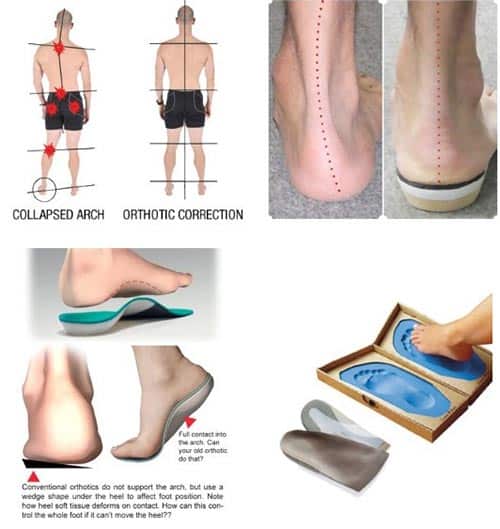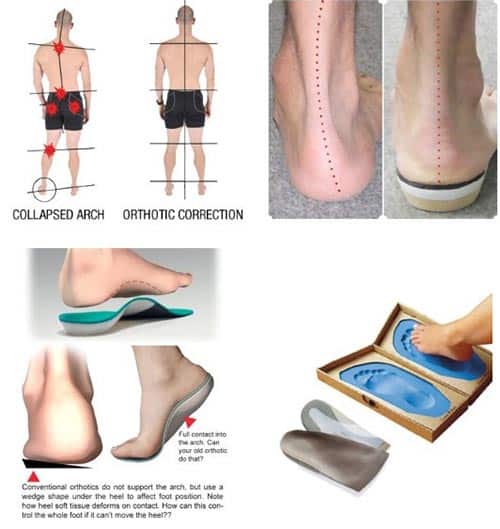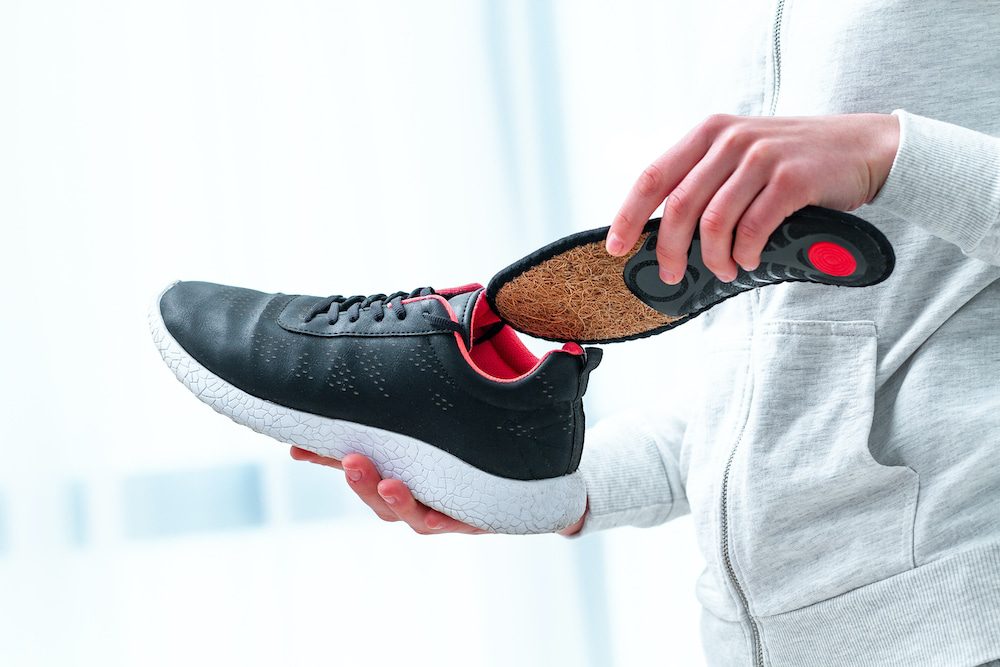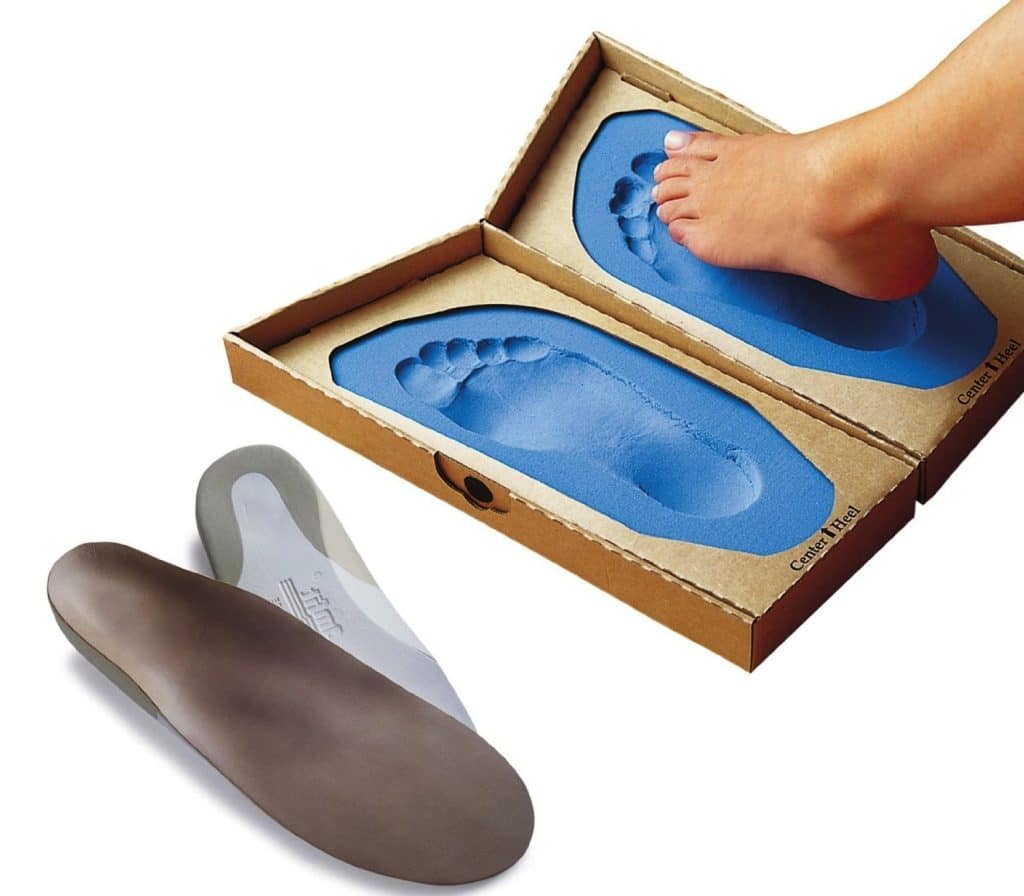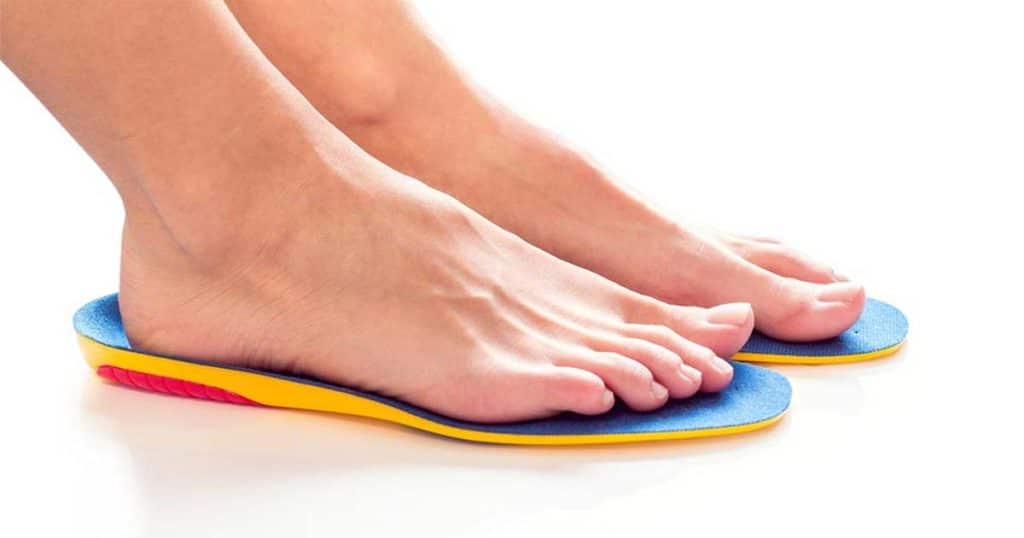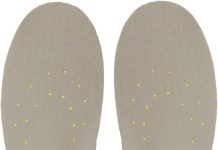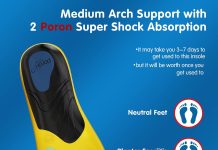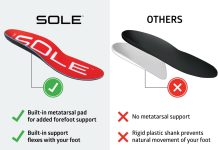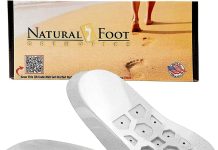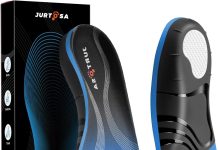Finding the perfect pair of shoes that not only looks good but also provides optimal support can sometimes feel like an impossible task. However, with the advent of custom orthotic insoles, we are now able to enhance the comfort and fit of any shoe. But the question remains: Can I use custom orthotic insoles in any shoe? In this article, we explore the versatility of these insoles and uncover the answer to this commonly asked question. Whether you’re a runner seeking relief from foot pain or someone looking for better arch support, we’ve got you covered.
This image is property of www.footdoctorpodiatristnyc.com.
Can I Use Custom Orthotic Insoles In Any Shoe?
Have you ever wondered if you can use custom orthotic insoles in any shoe? The answer is both yes and no. While custom orthotic insoles offer numerous benefits for foot health and overall comfort, not all shoes are created equal when it comes to accommodating them. In this article, we will explore the different types of shoes that are compatible with custom orthotic insoles and provide tips on how to choose the right shoe for your specific needs.
Choosing the Right Shoe for Custom Orthotic Insoles
When it comes to using custom orthotic insoles, choosing the right shoe is crucial. The ideal shoe should have a removable insole or a spacious interior to accommodate the custom inserts. Shoes with a removable insole allow you to replace it with the custom orthotic insole, ensuring a perfect fit and optimal support. Look for shoes with a wide toe box, as this provides ample space for the custom insoles without causing discomfort or restricting movement.
Types of Shoes Compatible with Custom Orthotic Insoles
Although not all shoes are suitable for custom orthotic insoles, there are several types that are compatible and can accommodate the extra support. Athletic shoes, such as running shoes, tennis shoes, and cross-trainers, are generally the most compatible due to their removable insoles and supportive designs. Dress shoes with removable insoles are also a good option, as long as they have a wide enough toe box and a supportive structure. Work boots and casual shoes with removable insoles can also be compatible, but make sure to check the specific design and features to ensure a proper fit.
Considerations for Different Shoe Styles
Different shoe styles have their own unique characteristics and considerations when it comes to using custom orthotic insoles. Let’s explore some of the most common shoe styles and how they can be adjusted to accommodate custom inserts:
-
Athletic Shoes: As mentioned earlier, athletic shoes are generally more compatible due to their removable insoles. However, it’s important to select athletic shoes that are designed for your specific activity, such as running or cross-training, to ensure proper support and cushioning.
-
Dress Shoes: Dress shoes often present a challenge when it comes to using custom orthotic insoles, as they are typically more rigid and have a narrower design. Look for dress shoes with removable insoles or opt for brands that offer dress shoes specifically designed for orthotic inserts.
-
Work Boots: Work boots are typically designed for heavy-duty use and may have thicker soles, making it tricky to find the right fit for custom orthotic insoles. Look for work boots with removable insoles and adjustable features for a customized fit.
-
Casual Shoes: Casual shoes, such as sneakers and loafers, can vary greatly in terms of design and compatibility with custom orthotic insoles. Always check for removable insoles, a wide toe box, and ample arch support before selecting a casual shoe for use with custom inserts.
Adjusting the Shoes to Accommodate Custom Insoles
In some cases, you may need to make adjustments to your shoes to ensure a proper fit with custom orthotic insoles. One common adjustment is to remove the existing insole of the shoe and replace it with the custom insert. This allows the custom insole to sit flush with the base of the shoe, providing maximum support and comfort. Additionally, you can use adhesive strips or Velcro to secure the custom orthotic insole in place, preventing it from sliding or shifting during movement.
Benefits of Using Custom Orthotic Insoles
Now that we have discussed the compatibility of custom orthotic insoles with different types of shoes, let’s explore the benefits of using these inserts for foot health and overall well-being.
Improved Foot Alignment and Posture
One of the primary benefits of using custom orthotic insoles is improved foot alignment and posture. These inserts are specifically designed to support the natural arches of your feet and provide proper cushioning and alignment for the entire foot structure. By promoting correct foot alignment, custom orthotic insoles can alleviate strain on the muscles and joints, reducing the risk of injuries and enhancing overall posture.
Alleviation of Foot Pain and Discomfort
Custom orthotic insoles can provide much-needed relief from foot pain and discomfort. Whether you suffer from plantar fasciitis, heel pain, flat feet, or other common foot conditions, these inserts can help distribute pressure evenly across the foot, reducing pain and discomfort. The added support and cushioning of custom orthotic insoles can also alleviate stress on the balls of the feet and heels, providing relief for those who spend long hours on their feet.
Prevention of Foot Conditions
Using custom orthotic insoles can also play a crucial role in preventing various foot conditions. By providing proper arch support, shock absorption, and stability, these inserts can help prevent issues such as overpronation, plantar fasciitis, and metatarsalgia. Additionally, custom orthotic insoles can help distribute body weight evenly, reducing the risk of developing bunions, corns, and calluses.
Enhanced Athletic Performance
For athletes and individuals engaged in sports activities, custom orthotic insoles can significantly enhance performance. They provide the necessary support and stability during high-impact movements, reducing the risk of injuries and improving overall balance. The shock-absorbing properties of custom orthotic insoles help minimize the stress on the feet and lower limbs, allowing athletes to perform at their best.
Determining the Correct Fit for Custom Orthotic Insoles
To ensure the optimal benefits of using custom orthotic insoles, it is crucial to determine the correct fit. Let’s explore the steps you can take to find the perfect fit for your custom inserts.
Getting a Professional Assessment
The first step in determining the correct fit for custom orthotic insoles is to get a professional assessment. Schedule an appointment with a podiatrist or orthopedic specialist who can examine your feet and assess any specific foot conditions you may have. They will be able to provide valuable insights into the type of support and cushioning you need in your custom inserts.
Considering Different Sizes and Materials
Custom orthotic insoles come in different sizes and materials to cater to various foot types and conditions. When selecting the correct fit, consider the size and shape of your feet, as well as any specific foot conditions you may be dealing with. The material of the insole is also important, as some may offer more cushioning and shock absorption while others are more rigid for extra support.
Ensuring Proper Arch Support
Proper arch support is essential for a correct fit when using custom orthotic insoles. The inserts should align with the natural arch of your foot, providing ample support without causing discomfort. During the fitting process, make sure the arch of the custom insole matches your foot’s arch height, ensuring optimal support and distribution of pressure.
Customizing Insoles for Specific Conditions
If you have specific foot conditions, such as plantar fasciitis or overpronation, it may be necessary to customize your insoles accordingly. Some custom orthotic insoles offer additional features, such as heel cups or metatarsal pads, to target specific problem areas. Discuss your specific needs with your podiatrist or orthopedic specialist, and they will guide you in choosing the best custom insole for your condition.
Making Sure Custom Orthotic Insoles Fit Different Foot Types
Different foot types require different levels of support and cushioning. Let’s explore how custom orthotic insoles can be adjusted to fit different foot types:
High Arches
Individuals with high arches often require additional support to prevent strain and foot fatigue. When using custom orthotic insoles for high arches, it is important to choose inserts with a deep heel cup and ample arch support. These features will help redistribute pressure evenly across the foot and maintain proper alignment.
Flat Feet
For individuals with flat feet, custom orthotic insoles can provide much-needed arch support and stability. Look for inserts with a substantial arch support system and cushioning to help lift the arch and reduce overpronation. A deep heel cup is also beneficial to prevent excessive inward rolling of the foot.
Neutral Arches
Those with neutral arches can benefit from custom orthotic insoles that offer a balanced combination of support and cushioning. Look for inserts that provide moderate arch support and cushioning to maintain proper foot alignment. A deep heel cup and shock-absorbing properties can also enhance comfort and stability.
This image is property of www.familyfootwearcenter.com.
Common Misconceptions about Using Custom Orthotic Insoles
There are several misconceptions surrounding the use of custom orthotic insoles. Let’s debunk some of the most common ones:
One Size Fits All
Contrary to popular belief, custom orthotic insoles are not one size fits all. Every individual has unique foot characteristics and conditions that require personalized support. Custom orthotic insoles are specifically designed to cater to these individual needs, providing the necessary support and cushioning for optimal foot health and comfort.
Orthotic Insoles Are Only for Individuals with Foot Problems
While it is true that custom orthotic insoles can effectively treat various foot conditions, they are not exclusive to individuals with foot problems. Even those without specific foot conditions can benefit from the added support and comfort that custom insoles provide. Athletes, individuals with active lifestyles, or those who spend long hours on their feet can all benefit from the preventive and performance-enhancing properties of custom orthotic insoles.
Orthotic Insoles Can Fix All Foot Issues
Although custom orthotic insoles can provide significant relief and support for various foot issues, they may not be a cure-all solution. Some complex foot conditions may require additional treatment methods, such as physical therapy or surgery. It is important to consult with a medical professional to determine the appropriate course of treatment for your specific foot issue.
Alternative Options for Shoe Support and Comfort
If custom orthotic insoles are not a suitable option for you, there are alternative options available to improve shoe support and comfort:
Over-the-Counter Orthotic Insoles
Over-the-counter orthotic insoles are pre-made inserts that can provide some level of support and cushioning. While they may not offer the same level of customization as custom orthotic insoles, they can still provide added comfort and relieve minor foot discomfort.
Heel Cups and Cushions
Heel cups and cushions are specifically designed to target heel pain and provide additional support and cushioning. They can be inserted into the shoe to alleviate pressure and reduce discomfort in the heel area.
Foot Exercises and Stretching
Engaging in regular foot exercises and stretching can help improve foot strength, flexibility, and overall comfort. These exercises can be done at home or under the guidance of a physical therapist to address specific foot concerns and promote better foot health.
Proper Footwear Selection
Selecting the right footwear is crucial for overall foot comfort and support. Look for shoes that offer ample arch support, cushioning, and a wide toe box. Avoid shoes that are too tight or restrictive, as they can cause discomfort and foot problems in the long run.
This image is property of i0.wp.com.
Seeking Professional Guidance for Custom Orthotic Insoles
When considering custom orthotic insoles, it is advisable to seek professional guidance from a podiatrist or orthopedic specialist. They have the expertise and knowledge to assess your foot condition, recommend the appropriate type of custom insole, and guide you in selecting the right shoe for optimal fit and support.
Consulting with a Podiatrist or Orthopedic Specialist
A consultation with a podiatrist or orthopedic specialist is the first step in obtaining custom orthotic insoles. They will conduct a thorough examination of your feet, discuss any specific foot concerns or conditions, and provide recommendations for the most suitable custom insoles.
Proper Assessment and Customization
During the assessment, the podiatrist or orthopedic specialist will take precise measurements of your feet and create a mold or digital scan for customizing the insoles. This ensures that the inserts are tailored to your unique foot structure and needs, providing the highest level of comfort and support.
Advice on Shoe Selection and Modifications
In addition to providing custom orthotic insoles, a podiatrist or orthopedic specialist can offer valuable advice on shoe selection and modifications. They can recommend brands or specific shoe styles that are compatible with the custom inserts and make adjustments to the shoes if necessary.
Caring for and Maintaining Custom Orthotic Insoles
To ensure the longevity and effectiveness of your custom orthotic insoles, it is essential to care for and maintain them properly. Here are some tips for maintaining your custom inserts:
Regular Cleaning and Hygiene Practices
Clean your custom orthotic insoles regularly to maintain hygiene and prevent odor-causing bacteria. Follow the manufacturer’s instructions for cleaning and, if necessary, use mild soap and water to gently scrub the insoles. Allow them to air dry completely before reinserting them into your shoes.
Replacing Worn-out or Damaged Insoles
Over time, custom orthotic insoles may wear out or become damaged. It is important to monitor their condition and replace them as needed. Signs that your insoles may need replacing include visible wear and tear, loss of cushioning, or a decrease in overall support and comfort.
Storing Insoles Properly
When not in use, store your custom orthotic insoles in a cool, dry place to prevent damage and maintain their shape. Avoid exposing them to direct sunlight or extreme heat, as this can cause the materials to deteriorate.
This image is property of www.hss.edu.
Conclusion
Custom orthotic insoles can make a significant difference in foot health, comfort, and overall well-being. While not all shoes are compatible with these inserts, there are various options available, including athletic shoes, dress shoes, work boots, and casual shoes. Determining the correct fit, accommodating different foot types, and seeking professional guidance can help ensure the optimal benefits of using custom orthotic insoles. Remember to care for and maintain your custom inserts properly to prolong their lifespan and effectiveness. Whether you have specific foot conditions or simply want to enhance foot comfort and support, custom orthotic insoles are a fantastic investment in your long-term foot health.

